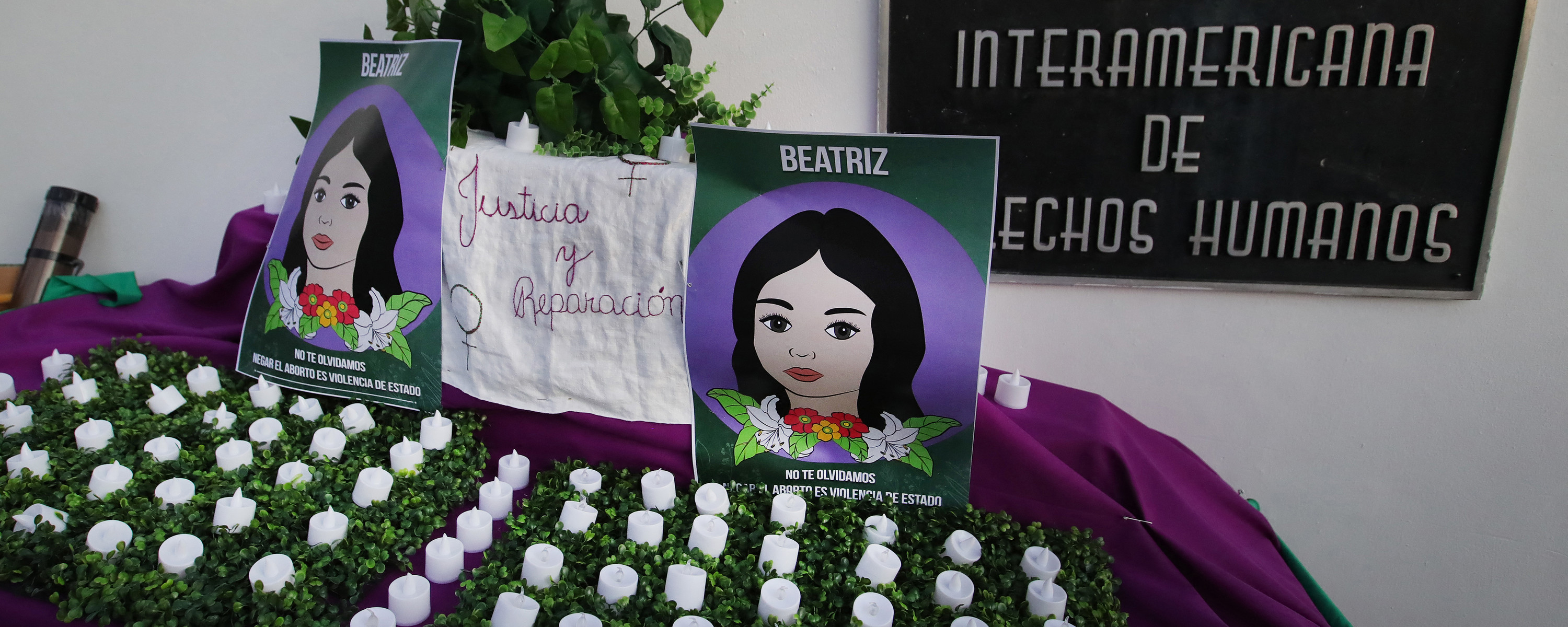Awaiting Beatriz Ruling, Allies of Salvadoran State Seek to Undermine Inter-American Court

JOHN DURAN
Tuesday, September 24, 2024
María Luz Nóchez
Leer en español
A year and a half has passed since the Inter-American Court of Human Rights heard arguments in Beatriz v. El Salvador. This landmark abortion-access case concerns not only the small Central American country but the region; it is the first in the Inter-American System of Human Rights (IASHR) in which the implications of a country’s absolute abortion ban are under the judicial microscope in the Americas, home to three of the five countries with the most restrictive abortion bans in the world.
The Salvadoran state has been accused of incurring in torture for violating, among others, the rights to life, judicial guarantees, equality before the law, and the right to health of Beatriz, a woman who was found in 2013 to have a high-risk pregnancy and to be carrying a fetus that lacked a brain but was denied a therapeutic abortion despite her doctors’ medical opinion that she needed one. In 2022, the Inter-American Commission, the lower forum that rules on contentious cases that can then be raised to the Court, found that the treatment of Beatriz was “cruel, inhumane, and degrading.”
The state was already declared guilty of torture in 2021 in the preceding case Manuela v. El Salvador, pertaining to a woman sentenced to 30 years in 2008 for aggravated homicide. She died in prison from an undiagnosed illness that had also factored into her unborn baby’s death. The Court's ruling enabled actions to release the last seven women from The Seventeen — a group who had been convicted for over 30 years, falsely accused of first-degree murder.
Beatriz has gained such international attention that a total of 119 amicus curiae were sent to the Inter-American Court from legal and medical professionals and academics from around the world. Ipas LAC, one of the organizations representing Beatriz's family in its case against the state, told El Faro English that 89 of those briefs were arguments in favor of their cause. The totality of the documents is not public until the Court dictates its resolution, and only the interested parties can have access to them, though several of them have been published online anyway.
More:
https://elfaro.net/en/202409/el_salvador/27565/awaiting-beatriz-ruling-allies-of-salvadoran-state-seek-to-undermine-inter-american-court
